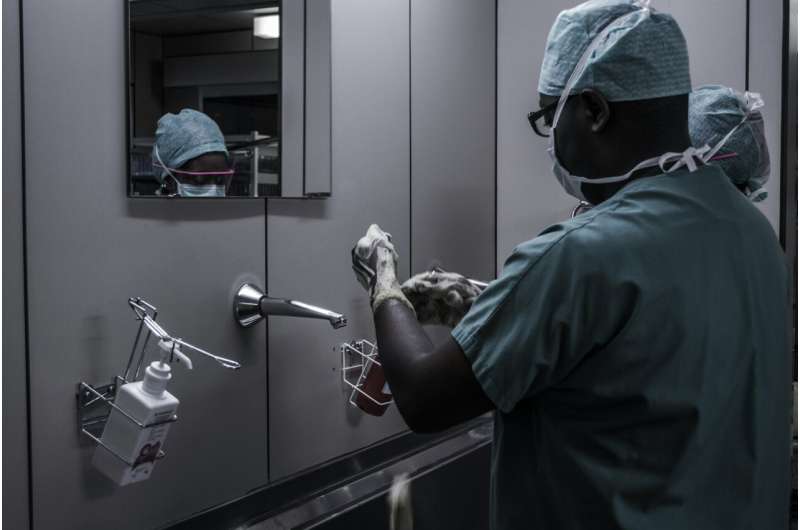This article has been reviewed according to Science X's editorial process and policies. Editors have highlighted the following attributes while ensuring the content's credibility:
fact-checked
trusted source
proofread
Large-scale European study into preventing burnout due to stress among staff in and around the operating theater

On average, health care professionals involved in surgical procedures and care in hospitals experience more stress and burnout than other professional groups in Europe. An estimated 60% of these caregivers are showing symptoms of burnout, while up to half of nurses are considering leaving their profession. To address this Amsterdam UMC will lead a European consortium in search of the best solutions to stress.
"Health care providers involved in surgical procedures are under enormous pressure. Think of surgeons, nurses, theater assistants, anesthesiologists. They drop out due to stress or start looking for another job. Partly because of this, we have a large and increasing shortage of health care personnel," says surgeon and research leader Marlies Schijven.
"Furthermore, due to understaffing, it is increasingly difficult to encourage people to come and work for us. Hospitals are facing rising costs and waiting lists are increasing. Ultimately, patients, and we as a society, will have to bear the adverse consequences of that if we don't look for solutions now that keep our people safe at work."
The researchers want to develop, among other things, a digital tool that, supported by artificial intelligence, can predict which stress-reducing methods work best for individual health care providers.
Stress varies from person to person
The study, called KEEPCARING, is divided into a number of phases. First of all, the researchers will find out which stress profiles can be distinguished for each professional group, and then how best to measure stress.
"Stress is now a catch-all term. What constitutes stress varies from person to person and also from situation to situation. I may be stressed because I suffer from a high administrative burden, which means that I can't get my work done. But someone else may experience stress in his or her private life because it is not possible to go home on time due to the high workload," says Schijven.
"Another may develop physical symptoms due to an incorrect working posture or as a result of perceived psychological pressure. That's why we're going to start by finding out what stress profiles there are and how they occur in the various occupational groups."
In addition, the researchers want to know how best to measure stress. They will map and use existing methods, but also develop new methods.
Mapping solutions
"After these initial phases, we will look for possible solutions. Here too, we are looking at existing interventions to reduce stress and want to develop new methods. For example, one health care provider may benefit most from sitting on a rowing machine for a short time just before an operation, while another may benefit more from structurally taking a beta-blocker. And for yet another, it helps to talk over the work with colleagues afterwards, or to relax in a personal VR environment," says Schijven.
The next step is to determine whether and how the various interventions best fit into the daily practice of the hospital.
"Because not every method fits the work situation. Exercising on a rowing machine may be beneficial for stress, but if it is not used because there is no time for it or because the person simply does not like it, it is of no use," adds Schijven.
Measuring stress with a T-shirt
Ultimately, a number of methods against stress will be tested in practice in clinical trials that will take place simultaneously in several European hospitals. At Amsterdam UMC, for example, the stress of the entire operating team will be measured with a special T-shirt that registers physical characteristics such as heart rate and sweat as a measure of stress.
"This is how we will measure whether a certain intervention actually reduces stress. At the same time, we monitor and analyze the social interaction between team members in the operating theater. In this way, we can trace exactly when certain stress factors occur, what that does to the people in the team, and especially whether it really helps if you apply stress-reducing interventions before an operation," says Schijven.
"In addition, we are also starting research aimed at improving collaboration between staff of different age groups in surgical nursing wards, in the participating hospitals in Copenhagen, Hamburg and Amsterdam."
Useful interventions
Ultimately, the study will lead to a portal with a variety of useful interventions against stress. These will be available to individual care providers, to care teams and to hospitals as an organization.
"This will soon provide insight into the most important stress drivers of the employees they employ for each hospital. Based on this, with the help of artificial intelligence, among other things, the organization can determine and predict which methods against stress they need to have in-house ... ," concludes Schijven.


















